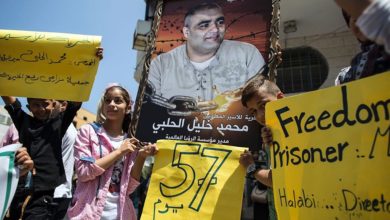India Will Test Elon Musk’s Twitter Free Speech Pledge

Elon Musk’s acquisition of Twitter could give the Indian government extra leverage to crack down on critics—despite Musk’s stated aims to preserve free speech on the platform—due to Tesla’s business ambitions in the country.
Twitter’s current leadership has repeatedly rejected Indian government demands that it remove any tweets that were critical of Prime Minister NarendraModi or his party. It comes at a time when observers are warning that the country is becoming an increasingly dangerous place for Muslims and oppressed castes—especially women belonging to those groups—thanks in part to hate speech, threats and harassment on social media.
But Musk’s Tesla, Inc., is currently lobbying the Modi government to reduce taxes on vehicle imports, which are preventing the electric vehicle maker from accessing a potentially giant market of customers in India.
“Elon Musk would be CEO of both a company seeking policy adjustments from the Indian government, as well as the owner of Twitter,” says Jessica Deere, the director of Washington D.C.-based tech watchdog Ranking Digital Rights. “There are certainly conflicts of interest there.”
Continue reading: Twitter employees worry about Elon Musk ownership
Many, including Amazon founder Jeff Bezos, have wondered publicly whether Musk’s business ambitions for Tesla in China, its second most-important market after the U.S., will give the Chinese government leverage to demand Musk suppress the speech of critics of the ruling communist party on Twitter. Tesla’s incentive to keep the government happy in India will perhaps test even further how much Musk really means what he says about freedom of speech.
Musk last summer tweeted that Tesla wants to enter the Indian market, but can’t because “import duties are the highest in the world by far of any large country.” New Delhi has frustrated Musk’s ambitions by levying import taxes of 100% on cars worth more than $40,000, and 60% on cheaper vehicles. ”We are hopeful that there will be at least a temporary tariff relief for electric vehicles,” Musk added in another tweet. “That would be much appreciated.”
Tesla suggested an import duty of 40% on electric vehicles. However, Indian media reports that the government had requested more assurances about investments in India. “Still working through a lot of challenges with the government,” Musk tweetedIn January 2022, a user from India asked him when Teslas were available for sale.
Tesla has not yet responded to my request for comment.
Musk stated that he would run Twitter on the free speech principles, provided the laws in the countries where Twitter is operating allow it. “By ‘free speech,’ I simply mean that which matches the law,” the billionaire tweeted on April 26. “I am against censorship that goes far beyond the law.”
Freedom of speech in the USA is guaranteed by the First Amendment. But in India, national laws include restrictions on free speech online, including the legal necessity for platforms to remove content that threatens “decency” or that government officials believe threatens the “interests” of India. Twitter clashed in 2014 with the Indian government, when the platform was asked to remove criticisms of the ruling party. Twitter was the dominant platform insteadSome content may be removed for freedom of expression reasons.
Continue reading: Elon Musk and the Tech Bro Obsession With ‘Free Speech’
“In keeping with our principles of defending protected speech and freedom of expression, we have not taken any action on accounts that consist of news media entities, journalists, activists, and politicians,” Twitter said in a statement at the time. The platform also began labeling some government tweets containing disinformation, prompting Indian police to raid Twitter’s New Delhi offices.
“There is also the worry that Twitter being taken private would erode the transparency that Twitter has shown up until this point,” Deere says. “Without that transparency, it’s very difficult to evaluate any sorts of conflict of interest and how it would play out on the platform.” Deere’s organization Ranking Digital Rights recently ranked Twitter top among all tech companies for standing up for its users’ digital rights, though said the company could still be doing much more.
As with other social media companies in India, Musk’s business incentives present a potential conflict of interest when it comes to protecting users’ safety. In 2020, India’s political opposition criticized Facebook over reports that it repeatedly refused to remove instances of anti-Muslim hate speech, while it was campaigning to lobby Indian telecoms regulators for a permit to expand its WhatsApp payment systems—a potentially multi-billion dollar business opportunity.
In what could already be seen as a potential olive branch to the Indian government, Musk has suggested that he wishes to rid Twitter of its top policy executive, Vijaya Gadde, who is of Indian descent and who was ultimately responsible for the company’s decisions to reject the Indian government’s demands to remove critical tweets. Musk was a major figure in the weeks following the acquisition’s announcement. targeted Gadde specifically in his tweets, effectively accusing her of being Twitter’s lead censor, resulting in legions of his fans harassing her on the site. TIME was told by several Twitter employees that they believe her days are limited at the company.
“People have no idea how wrong Musk is about this,” wrote Mike Masnick, editor of the tech news site Techdirt, in a tweet. “I know of few people on this planet more supportive of ACTUAL free speech than Vijaya. She has done more to protect free speech than he ever has.”
India’s marginalized communities are at risk
The harassment levied by Musk fans against Gadde mirrors the systemic harassment that supporters of India’s ruling party have long used to silence critics and marginalized groups on Twitter.
Many marginalized groups in India fear that they will be the biggest victims of any rollbacks of Twitter’s content moderation policies. Chief among them are Dalits, formerly known by the pejorative term “untouchables,” the most oppressed class of peoples under India’s rigid caste hierarchy.
In 2020, Twitter added caste as a “protected category” under the site’s policies, making it easier for Twitter to tackle caste-based hate speech and harassment. This change was only possible after the National Campaign on Dalit Human Rights, an organization that advocates for marginalised Indian communities and worked tirelessly to advocate for it.
Beena Pallical is the NCDHR director. She says that the campaign was born out of her experiences with rampant caste-based abuses on Twitter and no way to report them. “The current Twitter policy team [led by Gadde] has been very cooperative and understanding,” she tells TIME. “These changes are not enough as the space continues to be unsafe for many marginalized community voices, but the current team is still very receptive to these changes, making many efforts to fix loopholes on Twitter that make the space unsafe.”
Continue reading: Indian Politics Have Never Been More Reliable Than Caste
Pallical expressed concerns over Elon Musk’s self-professed “free speech absolutism,” as many caste-based slurs are not recognized by Indian law and thus would not fall under content that Musk has professed he would be bound to take down.
India’s dominant castes dominate the public discussion on Twitter. Caste-based harassment and abuse are still very common, despite being now protected by Twitter. “Not a single day goes by when I don’t get a casteist remark on Twitter,” says Meena Kotwal, a Dalit journalist who reports primarily on gender and caste issues. “I regularly get death and rape threats and I have filed two police complaints, but no actions have been taken yet.”
Recent police pressure on Kotwal made it clear that he had deleted a critical tweet about the caste system. “When the government and the police themselves are hounding anti-caste voices, you can imagine how hard it is to be vocal about our oppression,” Kotwal says.
Musk saidHe wants Twitter to recognize freedom of expression in accordance with law. In India, he can satisfy the government by implementing speech laws that protect freedom of speech. “Laws in India, specifically pertaining to free speech, have been used against marginalized communities, instead of favoring them,” says Subhajit Naskar, associate professor of Political Science at Jadavpur University. The takeover of Twitter by Musk, Naskar says, represents “a grave danger to the anti-caste movement.”
Read More From Time




